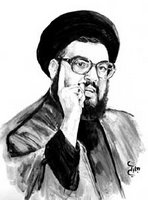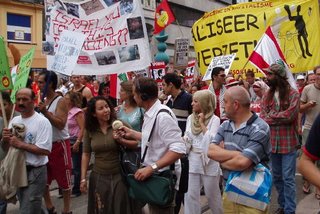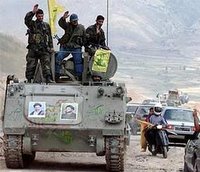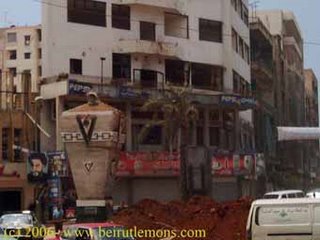By Thom Shanker The
WASHINGTON - Pound for pound and pounding for pounding, the Israeli military is one of the world's finest. But Hezbollah, with the discipline and ferocity of its fighters and its ability to field advanced weaponry, has taken
 ared, either, for Hezbollah's style of warfare - a kind that pits finders against hiders and favors the hiders. Certain that other terrorists are learning from Hezbollah's successes, the
ared, either, for Hezbollah's style of warfare - a kind that pits finders against hiders and favors the hiders. Certain that other terrorists are learning from Hezbollah's successes, the
Military planners suggest that the Pentagon take a page out of Hezbollah's book about small-unit, agile operations as
The
The style even has its own labels, including network warfare, or net war, and fourth-generation warfare, although many in the military do not care for such titles.
"We are now into the first great war between nations and networks," said John Arquilla, a professor of defense analysis at the
These network forces are not ignorant. They are computer-literate, propaganda- and Internet-savvy, and capable of firing complicated weapons to great effect.Hezbollah spent the past six years dispersing about 12,000 rockets across southern
"They dug tunnels. They dug bunkers, they established communications systems - cellphones, radios, even runners to carry messages that aren't susceptible to eavesdropping," said one military officer with experience in the
To attack
Hezbollah still possesses the most dangerous aspects of a shadowy terror network. It abides by no laws of war as it attacks civilians indiscriminately. Attacks on its positions carry a high risk of killing innocents. At the same time, it has attained military capabilities and other significant attributes of a nation- state. It holds territory and seats in the Lebanese government. It fields high- tech weapons and possesses the firepower to threaten the entire population of a regional superpower, or at least those in the northern half of
No solution has been written. But it would include military force along with diplomacy, economic assistance, intelligence and information campaigns.
"Most critically, we have to get better at - it's such a cliché - winning hearts and minds," said a military officer working on counterinsurgency issues. "That is influencing neutral populations toward supporting us and not supporting our terrorist and insurgent enemies."
photo: www.foreignpolicy.com - Hezbollah determination
Complete article: http://www.iht.com/articles/2006/07/30/news/tactics.php


























